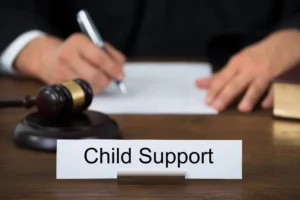
For divorcing couples who have children, or for unmarried couples who have children but are no longer together, understanding child support can feel like a guessing game. Most parents want to ensure their children are taken care of financially, however they also want to protect their own financial rights.
Child support in Texas is pretty much what it sounds like – financial assistance to support your child following a divorce. It is court-ordered money payable from one parent or conservator to the other, normally paid on a monthly basis. All child support in Texas must be paid through the Attorney General’s clearinghouse in San Antonio, called the Child Support Disbursement Unit. There is no option to opt out of that payment plan. Years ago, clients could choose to pay each other directly, but now the State will not allow that method of child support exchange.
Understanding Child Support In Texas — Common Questions
The first step in the process comes from understanding child support laws in Texas. Below are some of the most commonly asked questions regarding this complex family law topic.
Child support is intended to living expenses for the child, at the primary conservator’s home, which can include things like mortgage, utilities, food, clothing, shelter, schooling expenses, daycare expenses and extracurricular activities. The only thing it really doesn’t cover, and is not supposed to cover, is medical issues. Those are handled under the medical support part of the court order. So, there’s child support and medical support, two separate things.
The amount of child support in Texas is determined based on a number of factors that the court can consider. However, most of the time, because so much of the Judge’s time is taken up with child support matters, it involves a fairly routine application of the child support guidelines to the obligor’s income. I get into the details of calculating child support in the answer below.
Our state has statutory guidelines to assist in determining the most appropriate amount of child support for children whose parents are no longer together. For the majority of families the amount of child support is based solely on a formula that takes into account a rage of factors such as parental income and percentage of custody. In some cases, exceptions may apply, but as a general rule of thumb: if the noncustodial parent only has one child, that custodial parent will receive 20 percent of the noncustodial parent’s monthly income; two children is 25 percent; three children is 30 percent; and four children is 35 percent. If the noncustodial parent has children with another woman or man, the calculations will differ. For noncustodial parents who earn over $8,550 net a month, child support obligations will reach a capped limit, unless there is strong evidence that the financial needs of the children are more. This means the courts will apply the percentage (20, 25, 30%, etc) to the first $8,550 only.
Sadly, this is the result of the State being required come up with a system to force parents to support their own children. And it is important to remember, child support is enforceable by contempt. It’s the most common enforcement of a court order where the Judge can throw a child support obligor in jail for not paying child support. It’s an exception to the rule that you can’t be thrown in jail for a debt. You can be thrown in jail for not paying child support.
Child support is not taxable to the recipient and it is not a deduction for the payor. However, it is important to note that the IRS allows the primary conservator (custodial parent) to make use of child tax exemptions. Parents can vary this by signing a written agreement. In addition, parents must complete an IRS form 8332 to be able to claim the child support in the years they contractually agree to. This tax information is provided as informational content only, not as tax advice. While a family law attorney can advise you on child support and related laws, it is important for you to discuss any tax concerns with an appropriate tax professional or qualified accountant.
Child support is only ordered until your children are 18 or out of high school, whichever occurs last. There are no legal provisions for college expenses. However, while courts do not have the power to require that parents make provisions for college expenses, if you establish a contractually binding agreement regarding college expenses, a court will uphold this decision in the future.
Contact Our Dallas Child Support Lawyers
At Paula Lock Smyth Law Offices, we understand that the financial welfare of your children and of yourself are primary concerns during a divorce. Contact our law firm to learn more about your legal rights and your options. We can answer any questions you may have during a free consultation.